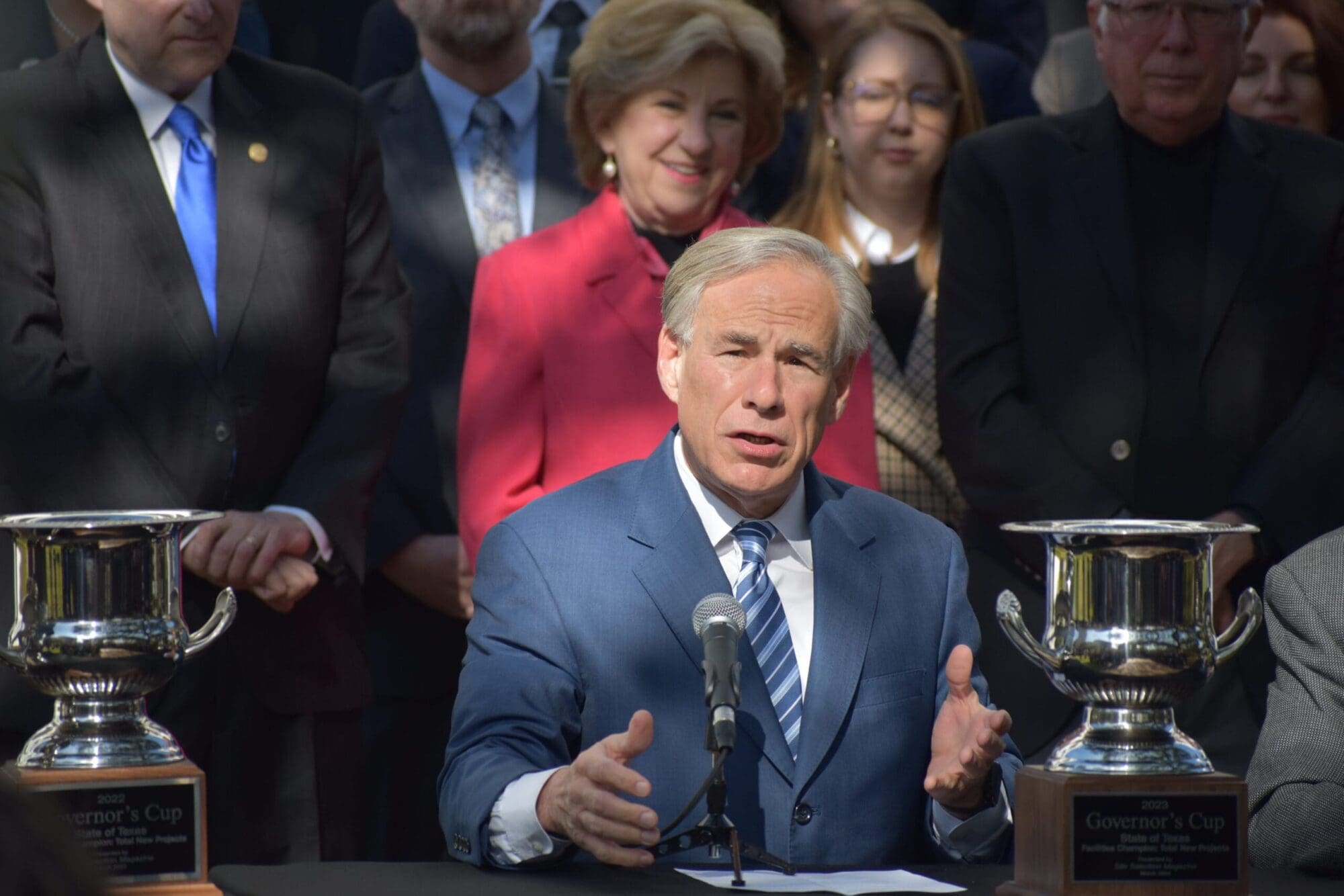As controversies swept Texas A&M last summer over the prospective hiring of a DEI advocate as the university’s journalism director, several changes to university leadership followed.
Mark Welsh was appointed as the university’s interim president following the resignation of former A&M President Katherine Banks.
Now, sources have suggested Welsh could be in the running for the permanent position.
Background
Katherine Banks oversaw the failed hiring of Kathleen McElroy, a diversity, equity, and inclusion proponent. McElroy rejected A&M’s final job offer for the position of journalism director after the university watered down her contract following public outcry.
Texas A&M changed McElroy’s proposed contract, ultimately settling on a one-year deal as a professor without tenure and a three-year appointment as the director of the journalism program, emphasizing that she could be terminated at any time.
Although Banks claimed she wasn’t informed of the change of contract, that was later disputed by other university officials.
Mark Welsh on DEI in 2016
Welsh served as the dean of TAMU’s Bush School of Government and Public Service from 2016 until he was appointed as interim president. Prior to 2016, he served in the U.S. Air Force as a four-star general and Obama appointee to the Joint Chiefs of Staff.
As dean in 2016, Welsh gave a speech on diversity where he advised students to “Interview everybody with an open mind, and in my view, ties go to diversity.”
“There’s a risk in that, a personal risk you’ll have to accept, but I encourage you to accept that,” said Welsh. “I’ve never regretted it for a second.”
Welsh told the audience that as Air Force Chief of Staff, he wanted to “up the number of women in the next class that came into the Academy by eight percent—from 22 percent to 30 percent.”
Four years later, I left the job. They’re still not there. Not because nobody wants to go there, everybody wants to go there, but all the rules say you can’t establish quotas, you can’t set goals, you can’t use numbers,” said Welsh. “All the lawyers fought us. It took two and a half years before we made any progress at all and then we only made it because I signed a memo saying we’re going to do it and you can try me later.
“So here’s my recommendation to you and this is what you’re going to have to decide on your own if you want to talk about diversity: Don’t be the leader who talks about it and isn’t willing to take some risks to create it. Don’t be that person,” Welsh told the audience. “And if you’re going to be, just don’t talk about it, it will be easier on you.”
When it comes to creating a climate that values diversity and insists on inclusion, I think you’ve got to remember that there’s no Switzerland. There is no neutral position. Either you’re part of the solution or you’re part of the problem. You choose.
Mark Welsh on DEI in 2023
“I think we’ve weaponized the acronym DEI,” Welsh told the A&M Faculty Senate in August.
“I think Dr. McElroy would have been a great hire for the journalism department,” he added.
A new state law is set to take effect on January 1 that requires public colleges and universities to disband their DEI departments and dissolve any internal DEI programs for hiring or employee training.
However, Welsh said he wouldn’t have supported such a law. “I don’t believe it’s beneficial to where we are trying to go long-range as a society.”
Welsh did acknowledge that the university shouldn’t have any issue implementing the new law.
Notably, despite TAMU’s efforts to create a more inclusive environment through diversity plans, the campus climate in 2020 was worse than that of 2015, according to the university’s own audits to measure students’ sense of belonging. While 82 percent of white students felt like they belonged on campus in 2020, only 55 percent of black students and 76 percent of Hispanic students said the same. Back in 2015, 92 percent of white students, 82 percent of black students and 88 percent of Hispanic students said they felt like they belonged.
Welsh has been instrumental in DEI advocacy in the Bush School, hosting the first-ever “Diversity Town Hall” in 2021. He chaired the Bush School’s DEI Committee and was involved in instituting “mandatory DEI trainings for students, additional mandatory training for faculty and staff, and creation of a new internal incident reporting mechanism for behavior that doesn’t rise to the level of the University’s existing Stop Hate program.”
“In my world, diversity is strength, equity builds trust, and inclusion is an imperative. And so that’s where we need to go,” said Welsh.
Leadership at Texas A&M
Texas A&M is overseen by a board of regents, who are appointed by Gov. Greg Abbott and confirmed by the Texas Senate.
Following Welsh assuming the role of interim president, Welsh said the TAMU Board of Regents would not determine faculty hirings.
“The hiring process is owned and operated by the university,” said Welsh. “I mean, period. We make that call.”
Welsh also informed the Faculty Senate of his plan for fielding regents’ calls:
I’ll just tell you that if a regent calls me and says, ‘Hey, I really am worried about this,’ I’ll say ‘Thank you for the call.’ But I’m not going to call the department head and tell them who to hire.
Texas A&M System Chancellor John Sharp has told the Faculty Senate that he and the board of regents would “would greatly value your assessment and opinions” of Welsh for permanent president of TAMU.
Sharp did not give a timeline for when the permanent president would be selected.
The board of regents is meeting November 8-10 in College Station.
Texas A&M did not respond to Texas Scorecard‘s request for comment before publication.





